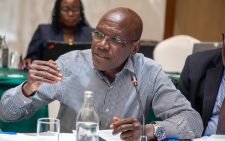KCSE malpractices – Episode 3: During exams

In the well-orchestrated web of KCSE exam malpractice, nothing is left to chance when it comes to cheating. In Episode 1 of this series, the general plan was hatched.
From Episode 2, the pre-exam phase, it was clear how schools engage in target setting and structured coaching long before the exams, ensuring that candidates are well-prepared — not through genuine academic effort, but through systematic exposure to leaked materials.
This coaching takes different forms, ranging from subtle hints by teachers during revision to direct access to leaked exam questions. In some cases, students are given “hot topics” that closely resemble or even match the actual examination questions. In this Episode 3, typically what happens during the exam period is visited.
During the exam period, various sophisticated techniques are employed to facilitate cheating. Schools devise strategic sitting arrangements where top-performing students—typically those ranked as Index 1-20—are assigned strategic positions in exam rooms that allow them to share answers with their fellow candidates discreetly. These high-achieving students, often referred to as the school’s “flag-bearers” (expected to give the school the grade As) or “cohort” (to serve others) undergo prior rigorous coaching to ensure they provide accurate answers.
Teachers play a pivotal role in this elaborate cheating network. Some, especially those assigned as invigilators, use their positions to access exam papers before they are officially opened. While past years saw exam papers leaked through extra copies, current malpractice methods involve sneaky access to sealed exam papers, which are then photocopied and distributed among complicit teachers to generate answers for the students to copy.
In schools where TSC instructors are away on invigilation duties elsewhere, Board of Management teachers take over the responsibility of generating answers. Typically, a teacher is supposed to tackle 60 percent of the question paper. These answers are then passed on to students in various discreet ways, including sneaking them into examination rooms with the help of invigilators, supervisors, and even security officers.
The involvement of school administrators and security personnel further entrenches this culture of cheating. In some schools, students are permitted to carry small folded cheat sheets, commonly known as ‘mwakenya’, into the examination rooms. More advanced methods involve micro-printed notes hidden inside pens, clothing, or mathematical sets.
In sophisticated schemes, smart mobile phones, though strictly prohibited, still find their way into exam centres. Corrupt officials and invigilators, having been bribed, allow students to use messaging platforms to receive answers in real-time.
Teachers, positioned strategically inside or outside the exam centres, discreetly pass answers to students through invigilators and supervisors. Some even go as far as placing pre-written answers on lockers before frisking begins, ensuring students access the materials unnoticed. Security officers, who should be enforcing discipline, are also part of the problem.
For bribes ranging between Sh2,000-4,000 per day, teachers and invigilators either ignore cheating or actively facilitate it by allowing students extra time to complete their exams. Rehearsal days are special days when malpractice rules are emphasised and price deals are cut between centre managers and invigilators/supervisors and even down payment made.
Another alarming aspect of KCSE malpractices is the manipulation of exam timing. While KNEC officials enforce strict start times, they are often lenient with the finishing time. Many schools extend the exam period by up to an hour, allowing candidates additional time to copy answers.
The level of sophistication in KCSE exam cheating has reached worrying levels, blurring the line between genuine academic excellence and fraudulent results. Each year, new methods emerge, making it increasingly difficult to curb the vice.
— The writer is a Professor of chemistry at the University of Eldoret, a former vice-chancellor, and a Quality Assurance Expert












